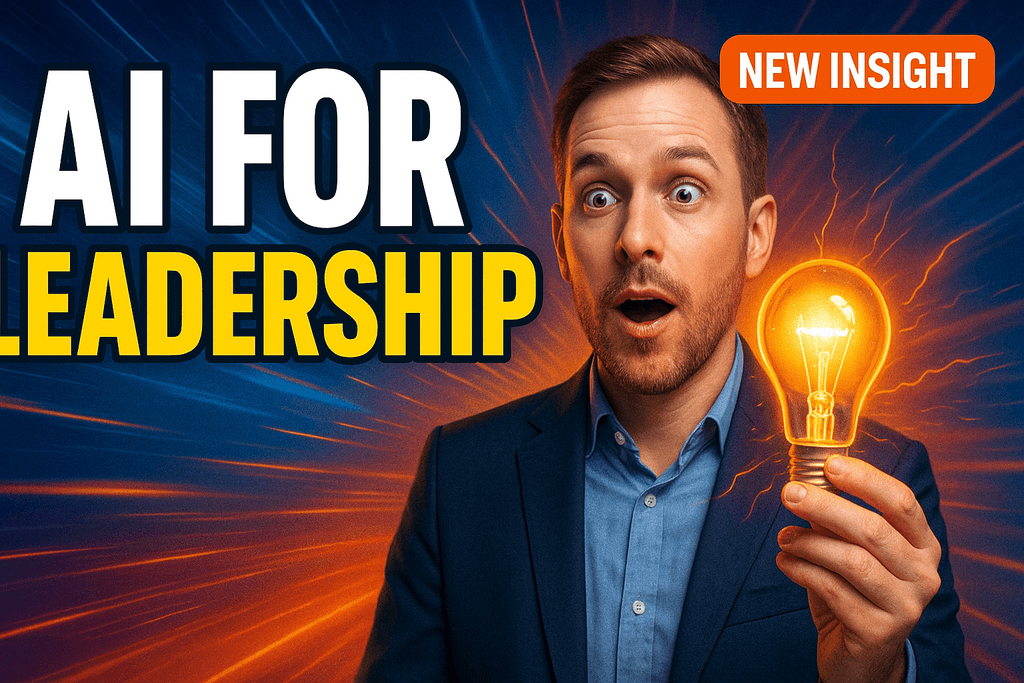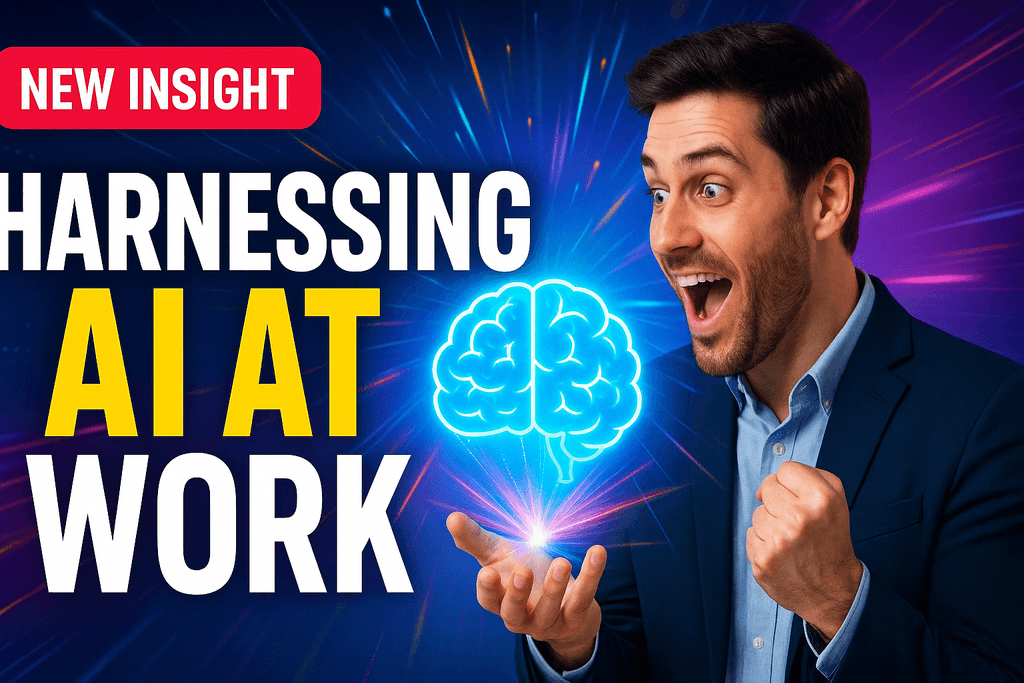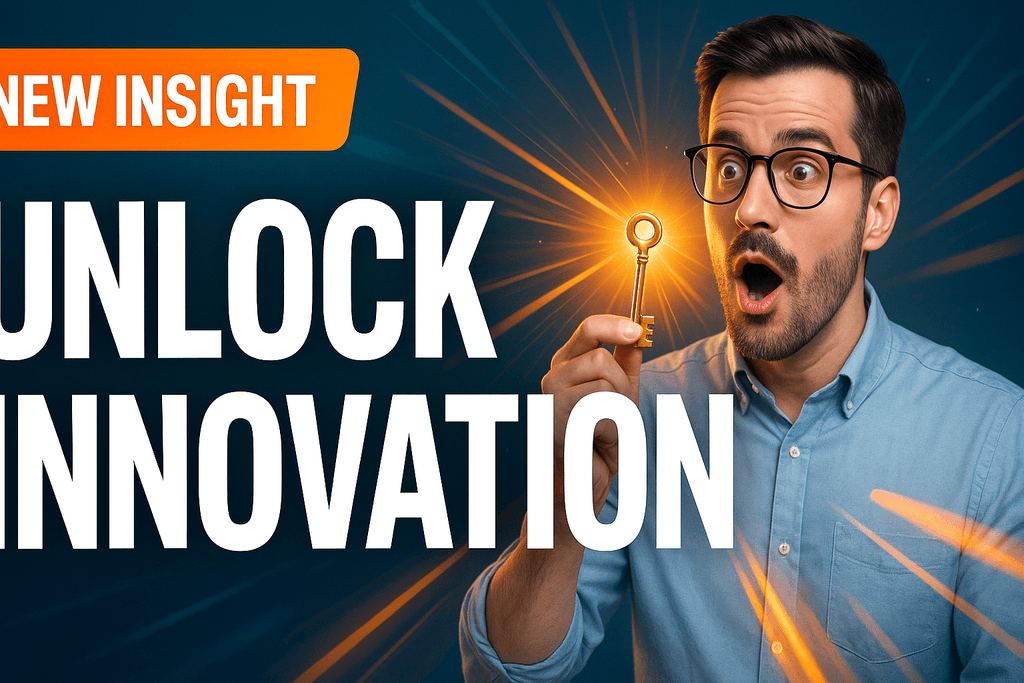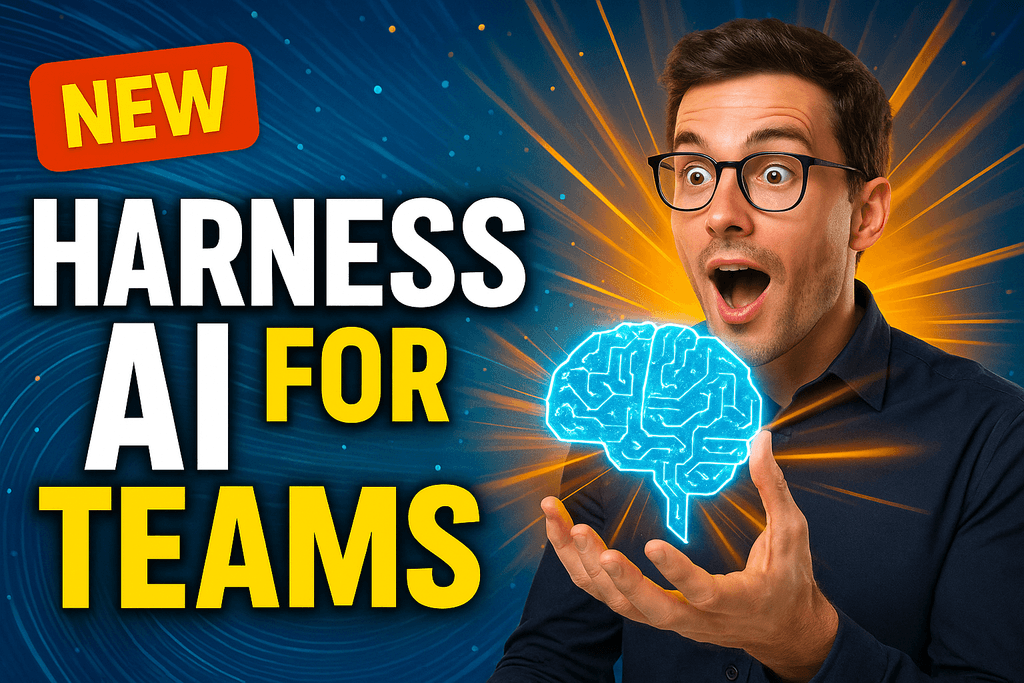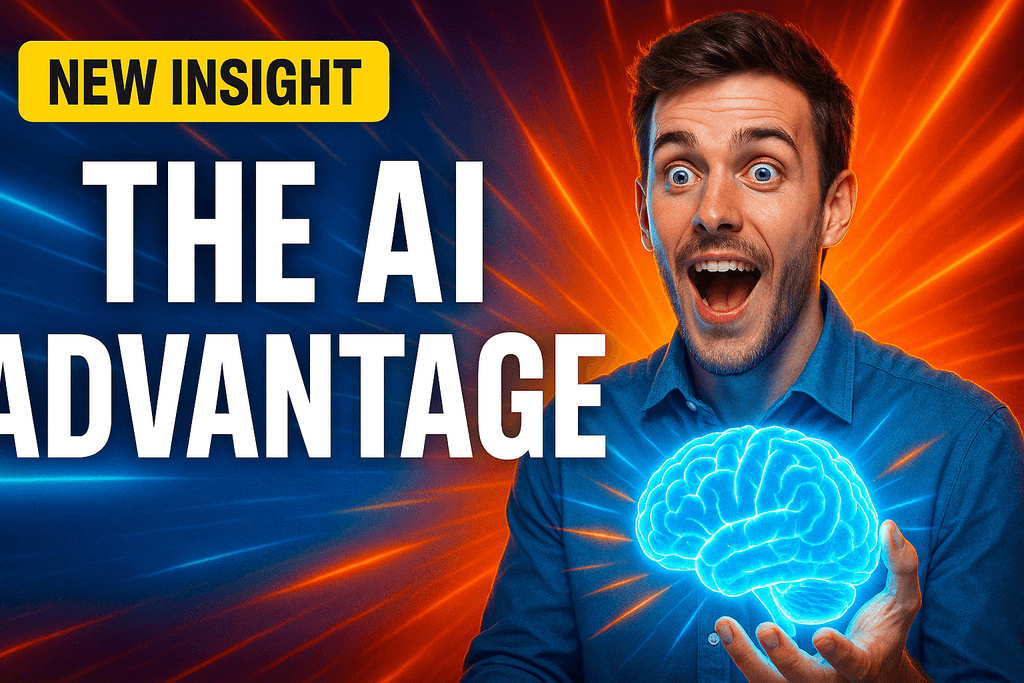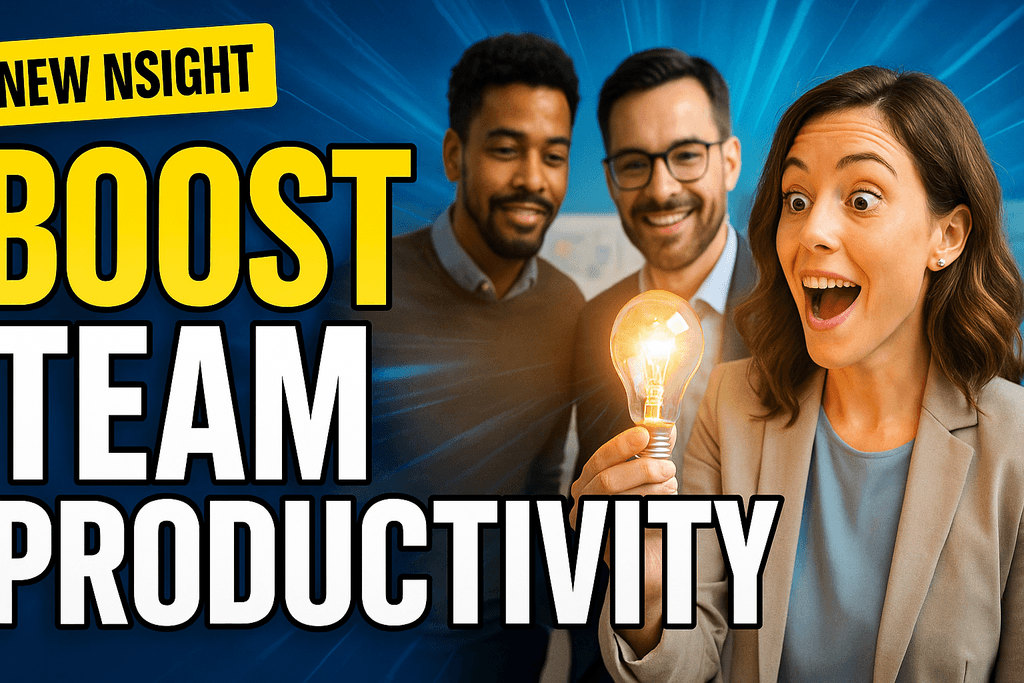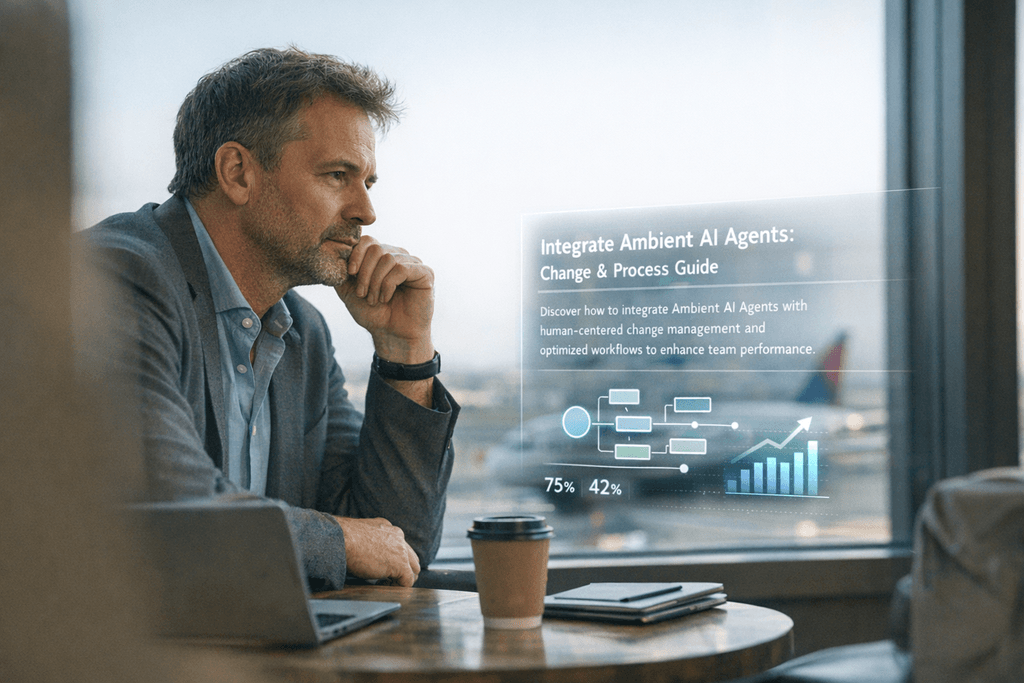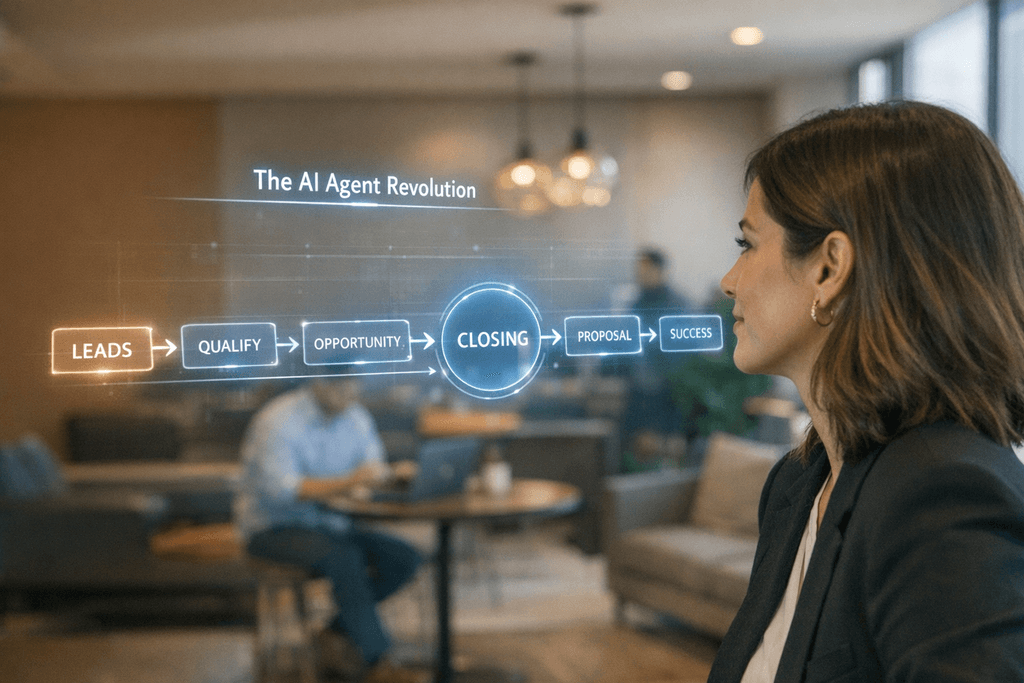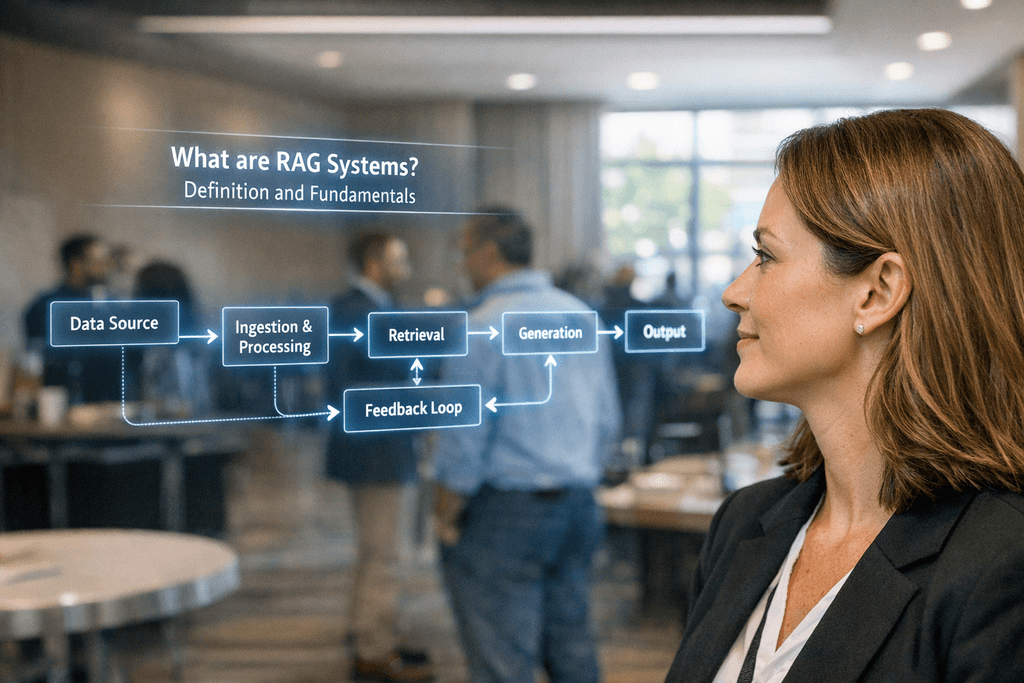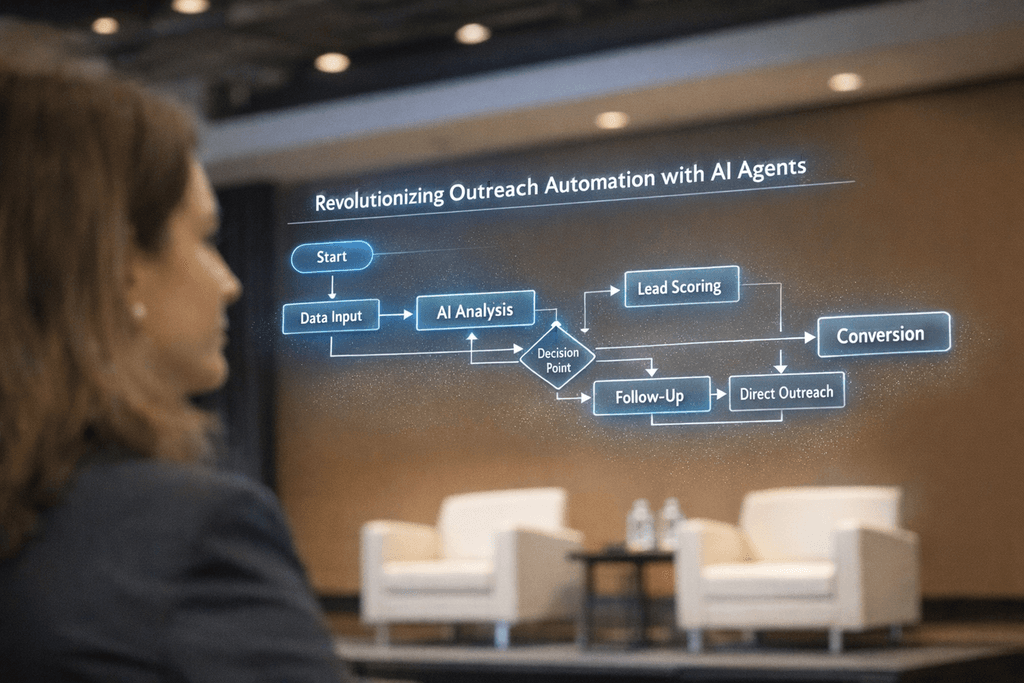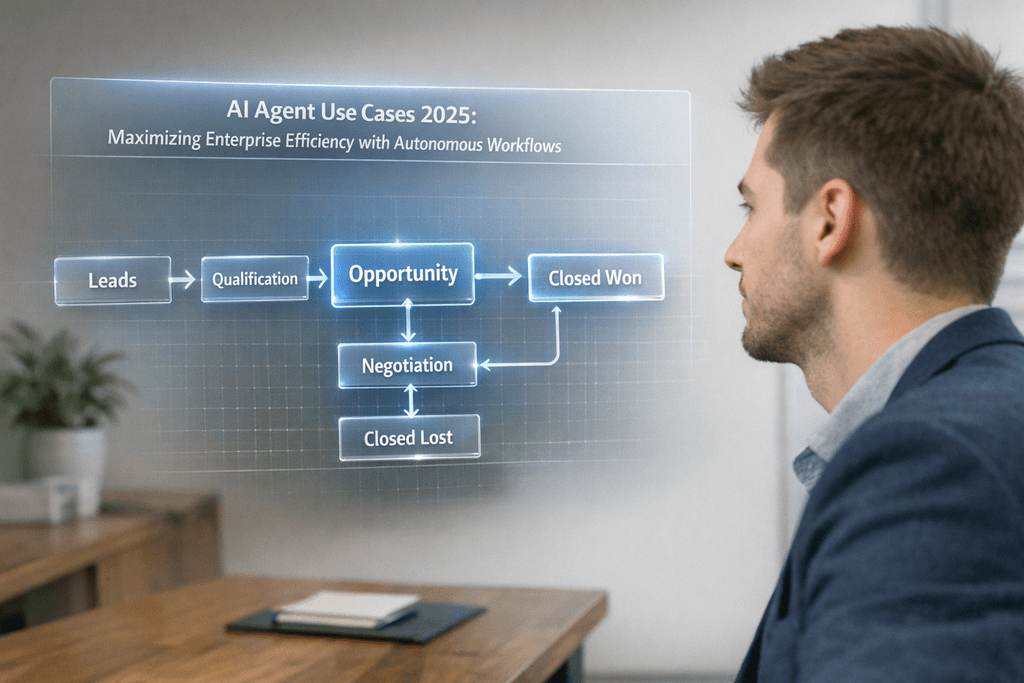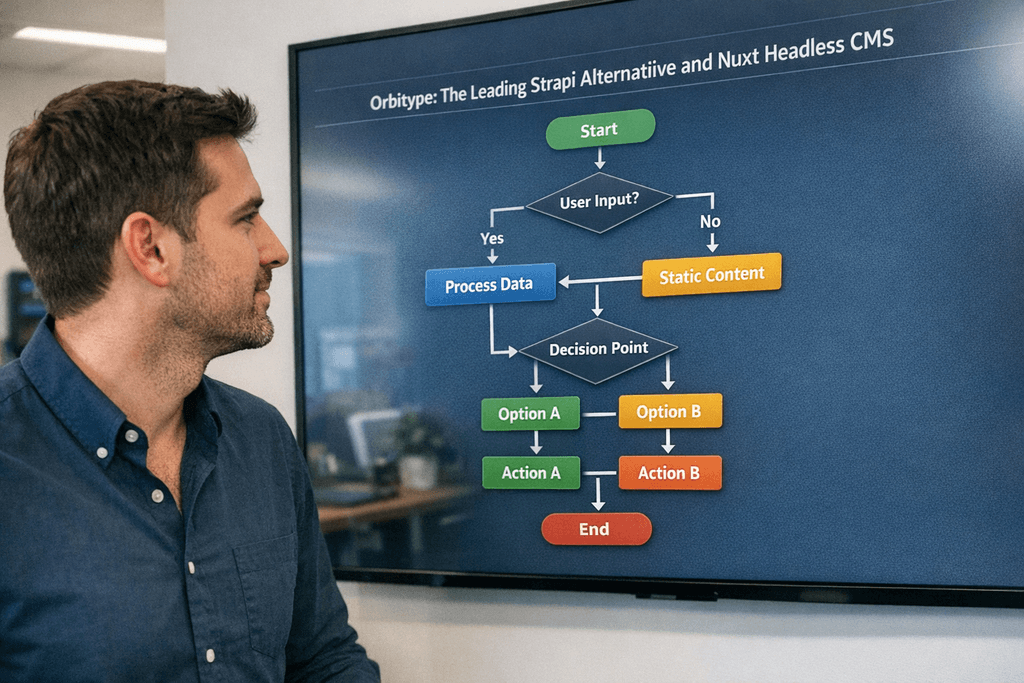
Table of Contents
Introduction: Why ROI Calculation for AI Agents is Critical
Investing in AI agents and automation solutions is no longer just a technical decision for SMEs today – it's a strategic necessity. Yet while the potential of AI-powered automation is obvious, decision-makers face a central challenge: How can the actual Return on Investment (ROI) of AI agents be calculated in a measurable and comprehensible way?
According to current studies, over 70% of automation projects fail not because of technology, but due to unclear success metrics and lack of ROI transparency. SMEs invest an average of €15,000-50,000 in initial AI automation solutions without having a systematic method for measuring success. The result: budgets are cut, promising projects are stopped, and valuable efficiency potential remains untapped.
This comprehensive guide shows you how to systematically calculate the ROI of AI agents, from basic formulas to industry-specific calculation models. You'll receive practical Excel templates, case studies with concrete numbers, and a step-by-step roadmap for implementation and success measurement in your company.
The Fundamentals of ROI Calculation for AI Agents
The classic ROI formula ROI = (Profit - Investment) / Investment x 100 falls short when applied to AI agents. Automation solutions generate value through multiple, often difficult-to-quantify factors: time savings, error reduction, scaling effects, and opportunity costs.
The extended AI Agent ROI formula:
ROI = [(Time Savings x Hourly Rate) + (Error Reduction x Damage Value) + (Scaling Gains) + (Opportunity Costs) - (Implementation Costs + Operating Costs)] / Total Investment x 100
Core Metrics for AI Agent ROI
- Time savings per process: Average 40-80% reduction in manual work time
- Error reduction: 85-95% fewer human errors in automated processes
- Availability: 24/7 operation vs. 8-hour work times
- Scaling costs: Marginal costs for additional processes vs. linear personnel costs
A practical example: An SME with 20 employees automates email processing and lead generation. With an average hourly rate of €65 and daily time savings of 2 hours per employee, this results in annual savings of €338,000 – with implementation costs typically ranging from €25,000-40,000.
Practical Calculation Models by Business Areas
Marketing & Sales
AI-powered Email Marketing: A typical AI agent for email automation costs €800-1,500 monthly but saves 25-30 hours weekly for content creation, personalization, and sending. With a marketing hourly rate of €75, this equals monthly savings of €7,500-9,000.
Lead Generation and Qualification: Automated lead research and outreach through AI agents reduces acquisition costs per lead by an average of 60%. A company with 100 monthly leads saves €36,000 annually with original costs of €50 per lead.
Customer Service & Support
AI Chatbots and Email Automation: Implementation costs of €15,000-25,000 typically amortize within 4-6 months. An AI agent processes 70-80% of standard inquiries automatically, reduces processing time per ticket from 15 to 3 minutes, and enables 24/7 availability.
Data Management & Administration
Automated Data Processing: AI agents for data entry, cleansing, and analysis save an average of 15-20 hours per week with a 90% error reduction. With an administration hourly rate of €45, this results in monthly savings of €2,700-3,600.
A practical case study shows: A digital agency automated their project documentation and client reporting with Orbitype. Result: 65% time savings in documentation, 40% faster project completion, and annual cost savings of €45,000 with an investment of €18,000.
Case Studies: Concrete ROI Examples from Practice
Case Study 1: Digital Agency - Email Automation
Initial situation: 15-person team, 40 hours weekly for email processing, customer inquiries, and follow-ups.
Solution: Implementation of an AI-based email agent with automatic categorization, response generation, and appointment scheduling.
Investment: €22,000 (implementation + 6 months operation)
Results after 6 months:
- 75% reduction in manual email processing
- Response time reduced from 4 hours to 15 minutes
- 30 hours weekly freed up for strategic tasks
- ROI: 340% (annual savings: €96,000)
Case Study 2: SME Mechanical Engineering - Quote Generation
Initial situation: 8 hours per quote, 25 quotes monthly, 12% error rate.
Solution: AI agent for automated quote generation with product configurator and price calculation.
Investment: €35,000
Results after 8 months:
- Quote generation reduced from 8 to 1.5 hours
- Error rate reduced to under 2%
- 50% more quotes with same personnel effort
- ROI: 285% (annual savings: €78,000)
Case Study 3: Online Shop - Customer Service
Initial situation: 200 customer inquiries daily, 3 full-time support employees.
Solution: AI chatbot with RAG system for automatic inquiry processing and product consultation.
Investment: €18,500
Results after 4 months:
- 80% of standard inquiries processed automatically
- Customer satisfaction increased from 3.2 to 4.1 (5-point scale)
- 1 full-time position saved, 2 employees for complex cases
- ROI: 420% (annual savings: €65,000)
ROI Calculator and Practical Tools for Success Measurement
Systematic success measurement of AI agents requires structured tools and regular monitoring processes. Here you'll find practical instruments for precise ROI calculation and continuous optimization.
Excel Template for ROI Calculation
Basic structure of the calculation tool:
- Input parameters: Number of employees, hourly rate, process times before/after automation
- Cost factors: Implementation, license costs, maintenance, training
- Benefit factors: Time savings, error reduction, scaling effects
- Time period calculation: Monthly and annual ROI development
Key Performance Indicators (KPIs) for AI Agents
Efficiency metrics:
- Process time reduction (in %)
- Throughput increase (processed cases per hour)
- Automation degree (% of automatically processed tasks)
Quality metrics:
- Error rate before/after implementation
- Customer satisfaction (NPS, CSAT scores)
- Rework rate
Financial metrics:
- Monthly cost savings
- Payback period
- Net Present Value (NPV) of investment
Monitoring and Continuous Optimization
Implement a monthly review system with the following elements:
- Performance dashboard: Real-time visualization of key KPIs
- Trend analysis: Identification of improvement potential
- Cost-benefit tracking: Continuous updating of ROI calculation
The Orbitype platform offers integrated analytics tools that automatically capture efficiency metrics and provide ROI-relevant data in real-time. Use this data for data-driven optimization decisions.
Roadmap for Successful AI Agent Implementation
A structured implementation strategy is crucial for the ROI success of AI agents. This proven 4-phase roadmap maximizes your chances of success and minimizes implementation risks.
Phase 1: Analysis and Preparation (Weeks 1-4)
Process analysis: Identify the 3-5 most time-consuming, repetitive processes in your company. Document current processing times, error rates, and personnel costs.
Evaluate ROI potential: Use the presented calculation models for an initial estimate. Prioritize use cases with the highest ROI potential and lowest implementation complexity.
Stakeholder alignment: Get decision-makers and affected employees on board early. Clearly communicate benefits and proactively address concerns.
Phase 2: Pilot Implementation (Weeks 5-12)
Identify quick wins: Start with a simple but visible use case. Email automation or document generation are ideal for initial successes.
Develop MVP: Implement a Minimal Viable Product version of the AI agent. Focus on core functionalities and collect user feedback early.
Initial measurements: Establish baseline metrics and begin continuous success measurement.
Phase 3: Scaling and Optimization (Weeks 13-24)
Feature expansion: Based on pilot experiences, expand the AI agent with additional functions and use cases.
Deepen integration: Connect the AI agent with existing systems (CRM, ERP, email) for seamless workflows.
Team training: Invest in comprehensive employee training for optimal use and acceptance.
Phase 4: Full Automation (from Week 25)
Process optimization: Analyze collected data and continuously optimize workflows.
Additional use cases: Expand automation to other business areas based on proven ROI successes.
Strategic development: Develop a long-term AI strategy for your company.
Conclusion and Recommendations for Action
Systematic ROI calculation for AI agents is not a luxury, but a necessity for successful digitalization projects. Companies that proceed systematically and use the right metrics achieve an average ROI of 300-500% within the first year.
The Most Important Success Factors
- Realistic expectations: Plan 6-12 months for full ROI realization
- Holistic view: Consider all cost factors and benefit potentials
- Continuous monitoring: Measure regularly and optimize based on data
- Change management: Invest in employee acceptance and training
Immediate Action Steps
- Start process analysis: Identify the 3 most time-consuming processes in your company today
- Calculate ROI potential: Use the presented formulas for an initial estimate
- Define quick win: Choose a simple use case for the pilot
- Get expert advice: Consult with automation specialists
Investment in AI agents is today a strategic decision for the future viability of your company. With the right approach and systematic ROI measurement, you create the foundation for sustainable automation success.
Start analyzing your automation potential today. Companies that act now gain a decisive competitive advantage for the digital future.
Sources and Additional Resources
Sources and Studies Used
- McKinsey Global Institute: "The Age of AI: Artificial Intelligence and the Future of Work" (2024)
- Deloitte: "State of AI in the Enterprise" - 3rd Edition (2024)
- PwC: "AI and Workforce Evolution" - SME Industry Study Germany (2024)
- Gartner: "Magic Quadrant for Enterprise Conversational AI Platforms" (2024)
Orbitype Resources
- AI Agent Use Cases 2025: Maximizing Enterprise Efficiency
- The AI Agent Revolution: Deployment Options and Architectures
- Orbitype Agentic Cloud OS - Platform Overview
- AI Agent Solutions by Industry
- Customer Case Studies and ROI Examples
Tools and Templates
- Excel ROI Calculator for AI Agents (Download via Orbitype)
- KPI Dashboard Template for Automation Projects
- Change Management Checklist for AI Implementations
- Process Analysis Worksheet for Automation Potential
Further Reading
- "Automation ROI: A Comprehensive Guide" - Harvard Business Review
- "The Economics of Artificial Intelligence" - University of Chicago Press
- "Digital Transformation Playbook for SMEs" - MIT Sloan Management Review


